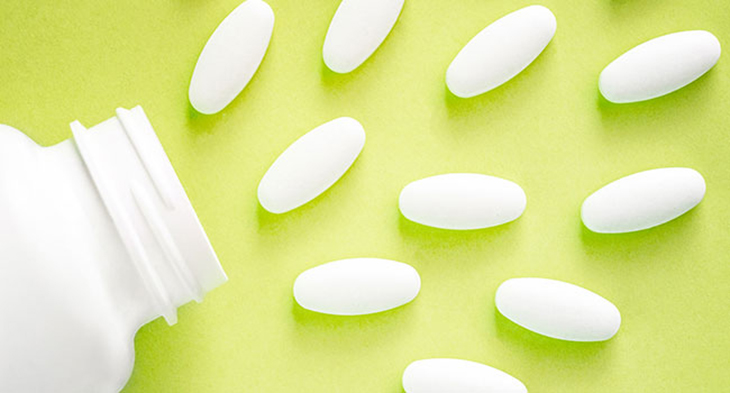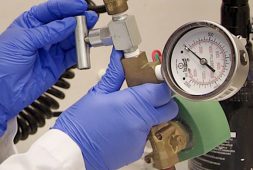
According to a late-breaking clinical trial recently presented at the American College of Cardiology Conference, the cholesterol-lowering drug intended for people who can’t or won’t take statins, Bempedoic acid (Nexletol), was shown to lessen the risk of heart attack by 23 percent. The study was published online in the March 4 publication of the New England Journal of Medicine.
The study’s first author, Steven Nissen, MD, and chief academic officer of Cleveland Clinic’s heart, vascular, and thoracic institute, said in a press release, “These findings add bempedoic acid to the group of LDL cholesterol lowering medications that have shown clinically meaningful cardiovascular benefits.”
For patients that are unable, or unwilling, to take statins, have very limited options when it comes to cholesterol-lowering medications. However, one possible choice is bempedoic acid, which was approved by the U.S. Food and Drug Administration (FDA) in 2020.
In the early clinical trials, bempedoic acid was found to lower LDL or “bad’ cholesterol by 15 to 25 percent, and another 38 percent when taken alongside ezetimibe (Nexlizet). However, the effects on clinical outcomes – like heart attack and stroke – have yet to be studied.
This new research is part of an initiative that’s called the CLEAR Outcomes trial. It has established bempedoic acid as an effective approach to lowering LDL cholesterol, while reducing the risk of cardiovascular events, such as heart attack and stroke.
Is Bempedoic Acid as Effective as Statins?
According to cardiologist and clinical assistant professor of internal medicine at the Ohio State Wexner Medical Center in Columbus, Ohio, Wesley Milks, MD, that it’s worth noting that ‘Nexletol lowered LDL-cholesterol levels only about 20 percent more than placebo at six months.’ Notably, Dr. Milks is a site co-investigator for the CLEAR Outcomes trial, where the Ohio State University Wexner Medical Center participated.
On the other hand, Milks also says that high-intensity statin therapy can also bring down LDL cholesterol by 50 percent or more. In addition, it generally does more to lessen the risk of ASCVD (atherosclerotic cardiovascular disease) than non-statin medications for a particular amount of cholesterol reduction.
Around 29 Percent of Patients Say They Can’t Take Statins
Dr. Nissen explained that the CLEAR Outcomes findings show that bempedoic acid is an effective therapy for the 7 to 29 percent of patients who report so-called statin intolerance.
According to estimates, doctors have recommended statins to more than 40 million adults in the United States, making this class of drugs ‘one of the most prescribed in the country.’ Regardless, even though statins have years of safety and efficacy data behind them, a large amount of these prescriptions are never filled out.
Moreover, a large percentage of people that do take statins choose to stop. In fact, the estimate is between 40 to 75 percent of people that decide to discontinue therapy within their first year.
The main and most common reason they say for not taking a statin is due to the potential side effects, specifically ‘muscle pain or aching, stiffness or cramps.’
Bempedoic Acid Could Be Less Likely to Cause Muscle Pain Than Statins
As per the study authors, bempedoic acid works in the liver, lowering cholesterol by inhibiting an enzyme called adenosine triphosphate citrate lyase (ACLY). Since the medication is activated in the liver rather than in the muscles or other tissues, it could also be likely that it causes fewer muscle-related side effects than statins in some patients, explain the authors.
Nexletol Lowered the Risk of Any Major Cardiac Event
A comprehensive clinical trial was conducted, involving nearly 14,000 adults who were divided into two groups: one receiving a daily bempedoic acid pill, and the other receiving a placebo. The research was sponsored by Esperion, the pharmaceutical company responsible for manufacturing the drug.
All participants had a prior history of cardiovascular complications or were determined to be at a high risk of experiencing a cardiovascular crisis. They were considered “statin-intolerant,” having discontinued statin usage due to the emergence of exacerbation of side effects during treatments, which subsequently resolved or improved upon cessation.
After six months, the group taking Nexletol witnessed a substantial average reduction of 29.2 points in their LDL levels. These participants were then followed for a median period of 40.6 months to assess how the medication influenced their risk of cardiac events.
In addition to lowering the risk of heart attacks, the drug demonstrated a 19 percent decrease in the likelihood of individuals requiring cardiac revascularization – a procedure that restores blood flow to the heart following a blockage. Moreover, there was a notable relative risk reduction of 13 percent for any major cardiac event.
Furthermore, the study revealed statistically significant reductions in mortality related to all cardiovascular causes.
Nexletol Has A Very Good Benefit-to-Risk Ratio
Dr. Nissen also said in the press release, “Bempedoic acid showed good safety, and its benefit-to-risk ratio was very good.” The incidence of muscle-related complaints was comparable between the trial participants who received the medication and those who were administered the placebo.
However, the study did highlight a noteworthy observation: individuals taking Nexletol exhibited significantly higher rates of elevated uric acid, gout, and cholelithiasis (gallstones). This finding suggests that this particular medication may not be the most suitable choice for individuals with these medical conditions, as emphasized by Dr. Milks.
Statins Still Go-To Drugs for Lowering Cholesterol
Even with the success of the trial, Dr. Milks explains, “In conjunction with appropriate heart-healthy lifestyle changes, statins will clearly remain the first-line pharmacological treatment for elevated cholesterol and cardiovascular risk.”
Dr. Milks also says that primary care providers and cardiovascular medical specialists widely acknowledge that statins are the most beneficial and efficient medications for reducing both cholesterol levels and the risk of cardiovascular disease.
Bempedoic Acid Is Just One of Many Non-Statin, Cholesterol-Lowering Medications
Dr. Milks explains that there are alternative cholesterol-lowering medications, apart from statins, which fall into the category of PCSK9 inhibitors. These drugs, including Repatha (evolocumab), Praluent (alirocumab), and Leqivo (inclisiran), are administered through injections, typically ranging from every two weeks to every six months. They have the capacity to lower LDL cholesterol levels by an additional 50 to 60 percent beyond what can be achieved through statin therapy.
Dr. Milks shares, “In addition, ezetimibe is a non-statin medication that can lower LDL cholesterol by an additional 24 percent in conjunction with statins, which slightly exceeds the amount of LDL-cholesterol reduction by bempedoic acid in the present study.”
Nexlizet is the brand name for a combination medication that comprises bempedoic acid and ezetimibe. Dr. Milks acknowledges the significance and promising nature of the trial results for bempedoic acid. However, he regards the drug as a secondary option compared to other cholesterol-lowering treatments and intends to continue prescribing it in that context.
“In my practice, I use bempedoic acid in patients who are unable to reach goal LDL-cholesterol levels on maximally tolerated therapy with statins, ezetimibe, and/or PCSK9 inhibitors, so really I see this as a fourth-line medication,” he says.
Nexletol Cost Significantly Higher Than Generic Statins
Dr. Milks also points out an important aspect regarding bempdoic acid, emphasizing that it is a branded medication and may potentially incur higher costs for certain patients compared to the generic options available for statins and ezetimibe.
It is also worth considering that this could result in significantly increased drug expenses. According to AJMC, a 30-day supply of both Nexletol and Nexlizet costs $396, but the actual cost for the patient depends on their insurance coverage.



